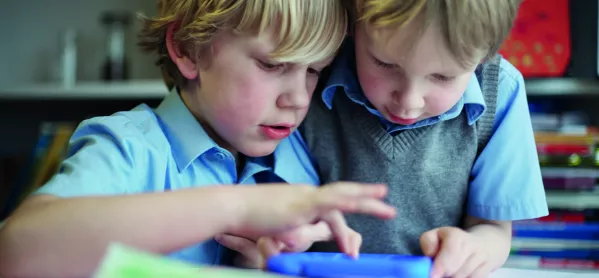Among certain groups of teachers, peer learning is seen as the last thing a teacher should consider doing. They say it wastes time, is disruptive and negates the role of the teacher as expert.
But the research tells a different story, according to Patrick Leman, dean and professor of psychology at the Institute of Psychiatry, Psychology and Neuroscience at King’s College London, and Dr Harriet Tenanbaum, reader in developmental psychology at the University of Surrey. They are the guests on the latest episode of Tes Podagogy (below).
“Some of the concerns about it, to do with behaviour and to do with it being disruptive… of course, that happens but that can happen in the more formal chalk and talk teaching environment, just as much as it can happen in a peer learning environment where there’s more active hands-on conversation,” says Leman. “[Actually, if peer learning] is managed well, and if the objectives and the processes are right, then what our research shows without question is that, that is incredibly beneficial for learning.”
Peer learning: the benefits
That research is a meta-analysis of peer learning. They define the term as any occasion when two or more students come together to discuss a learning activity. Interestingly, they found that there was little difference between the positive impact of pairs versus larger groups of children.
“We didn’t find a statistically significant difference between when children worked with just one other person versus more people,” says Tenenbaum. “There is this notion that in a group children can coast or there’s always one person who does all the work. It’s more complex than that because, yes, there probably is a bit of loafing or coasting in larger groups but that doesn’t mean to say that the loafers or the posters aren’t picking up something more than they wouldn’t be picking up on their own, or in an hour of interaction. And you could also argue that in a larger group there are just more opportunities for the right answer to come out.”
The counter-argument to this is that, regardless of whether children were learning, if the information had been conveyed by direct teacher instruction it would have been more efficient and more accurate. But Leman says that they actually compared peer learning with direct 121 teaching and the outcomes were the same.
Making concepts concrete
“We think it’s something about having to explain yourself doing the task with another person,” says Leman. “The important point for teachers, though, is that children working with peers were more effective than children doing the same task individually, which is what is more likely to happen in a classroom. Certainly, I’m not saying teachers should not give lessons, but as a follow-up to really make concepts more concrete, it seems that working in a peer group really supports children in their understanding.”
Tenanbaum and Leman go into these issues in more detail in the podcast, as well as expanding on the research they conducted. You can listen above or on your podcast platform (including Spotify) by typing in ‘Tes - the education podcast’.





